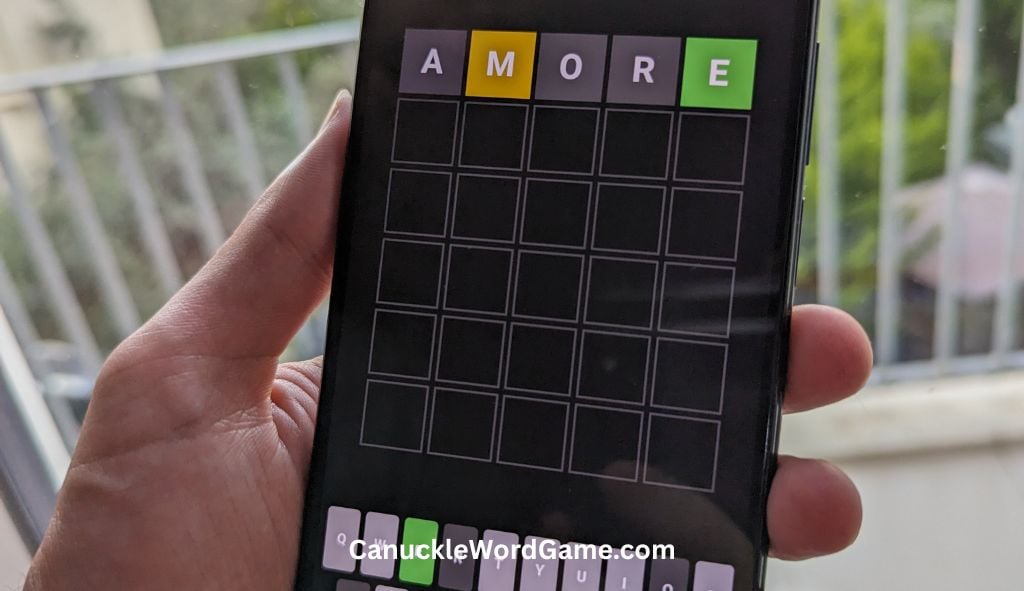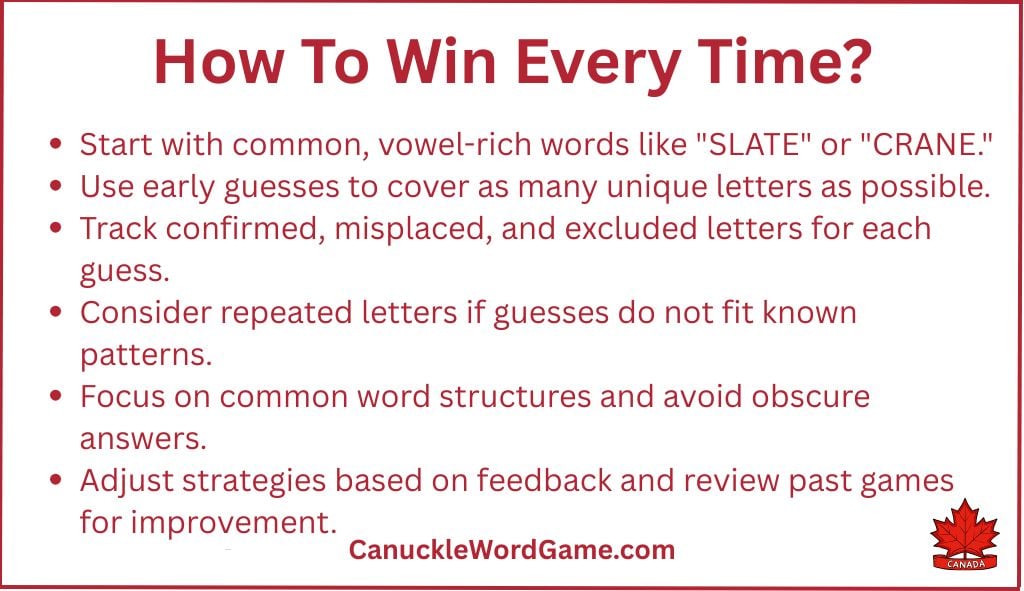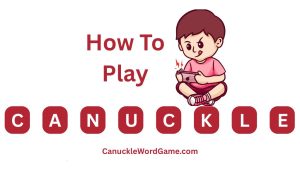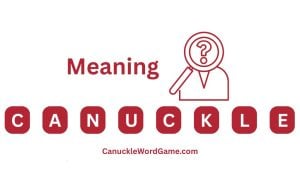How to Win Wordle Every Time: 15 Tips for Consistent Success
Win Wordle every time by using strategic starting words, maximizing letter coverage, tracking letter placement, and applying logic to eliminate options and identify the solution within six guesses.
How to Win Wordle Every Time: 15 Tips
Wordle is a word puzzle game where you have six tries to guess a hidden five-letter word. Each guess provides feedback: green for correct letter and position, yellow for correct letter but wrong position, and gray for incorrect letter. The goal is to solve the puzzle using logic, vocabulary, and process of elimination.
1. Use Strategic Starting Words
Why Starting Words Matter
A strong starting word gives you the most information about the puzzle. The best starting words use common letters and multiple vowels to maximize your chances of revealing key letters early. Words like “SLATE,” “CRANE,” “ADIEU,” and “AUDIO” are popular because they contain frequent consonants and several vowels.
Examples of Effective Starting Words
- SLATE
- CRANE
- ADIEU
- AUDIO
- RAISE
Choosing the same starting word each time can help you build a pattern and analyze results more quickly. Alternatively, some players use a different starting word every day for variety, but sticking to proven options can improve consistency.
2. Cover More Letters With Initial Guesses
The Multi-Word Strategy
To maximize information, use your first two or three guesses to cover as many unique letters as possible. This approach quickly eliminates unlikely options and highlights which letters are in play.
For example, after starting with “SLATE,” your next guess could be “ROUND” to test different letters. Using four words like “LIGHT,” “CANDY,” “POWER,” and “BUMFS” covers 20 unique letters, almost the entire alphabet, within four guesses. This leaves only a few possibilities for the final answer.
Avoid Overlapping Letters
Select words that do not repeat letters from previous guesses unless you have confirmed their presence in the answer. This ensures each guess provides new information.
3. Focus on Common Letters and Patterns
Most Frequent Letters in English
The most common letters in five-letter English words are E, A, R, O, T, N, S, L, and I. Prioritize these in your early guesses. Also, remember that some words use Y as a vowel.
Recognize Common Word Structures
Many five-letter words start or end with common combinations like “ST,” “SH,” “CR,” “CH,” and “ER.” If you have confirmed some letters, try placing them in these familiar patterns to find possible solutions.
4. Use Process of Elimination
Track Confirmed and Excluded Letters
Keep a mental or written note of which letters have been confirmed (green), which are present but misplaced (yellow), and which are not in the word (gray). This helps you avoid repeating mistakes and narrows down the options.
Logical Deduction
If you know certain letters are present but not in specific spots, try different placements in your next guesses. For example, if “A” is yellow in the second position, test it in other positions in your next guess.
5. Handle Repeated Letters
Don’t Ignore Double Letters
Wordle solutions can include repeated letters. If you have already guessed a letter and it appears green or yellow, consider the possibility that it may occur more than once. For example, words like “MAMMA,” “ROBOT,” or “GEESE” have duplicate letters.
Test Repetitions
If you suspect a repeated letter, try a guess that includes it twice in different positions. This can confirm or rule out the repetition.
6. Use Vowel-Heavy Guesses Early
Why Vowels Matter
Vowels are present in most English words. Using guesses that contain multiple vowels, such as “ADIEU,” “AUDIO,” or “MEDIA,” helps you quickly determine which vowels are in the answer and where they might fit.
Y as a Vowel
Remember that Y often acts as a vowel in five-letter words, especially at the end. Include it in your guesses if you are missing a vowel.

7. Think About Letter Placement
Common Starting and Ending Letters
Many five-letter words start with consonant clusters like “BR,” “ST,” or “CR,” and end with “ER,” “ED,” or “LY.” If you have some letters confirmed, try them in these positions.
Avoid Plurals Ending in S
Wordle rarely uses simple plurals ending in S. If you are considering a word that ends in S, try other possibilities first.
8. Adapt Based on Feedback
Green and Yellow Tiles
Use the information from each guess to refine your next attempt. If a letter is green, keep it in that position. If it is yellow, move it to a new spot. Never reuse gray letters.
Don’t Get Stuck on One Pattern
If you are not making progress, switch up your approach. Try a word that tests new letters or rearranges the ones you have.
9. Use Word Lists and Tools (If Needed)
External Resources
If you are stuck, use online word lists or solvers to brainstorm possible answers. Enter the letters you have and their positions to see matching words.
Practice Makes Perfect
Regular practice helps you recognize patterns and improve your guessing strategy over time.
10. Manage Your Guess Sequence
Early Guesses: Maximize Coverage
Use your first two or three guesses to test as many different letters as possible. Avoid repeating letters unless you have strong evidence they are present.
Final Guesses: Focus on Logic
Once most letters are known, use logic to arrange them into valid words. Consider all possible placements and combinations.
11. Don’t Rush-Take Your Time
No Time Limit
Wordle does not have a timer. Take time to think through each guess, especially as you approach your final attempts.
Fresh Perspective
If you are stuck, step away and return later. A fresh look can help you see new possibilities.
12. Avoid Obscure Words
Stick to Common Vocabulary
Wordle answers are always common, everyday words. Avoid using rare or archaic words as guesses, especially in later attempts.
Use Familiar Patterns
Rely on familiar letter combinations and word structures to guide your guesses.
13. Watch for Tricky Words
Unusual Letter Combinations
Some answers may use less common letters or combinations, like “FJORD” or “NYMPH.” If you have ruled out common options, consider these possibilities.
Double-Check Your Work
Before submitting a guess, review the feedback from previous attempts to ensure you are not repeating mistakes.
14. Learn From Your Mistakes
Review Past Games
After each game, review your guesses to see where you could have improved. This helps you refine your strategy for future games.
Adjust Your Approach
If you consistently struggle with certain types of words, focus on improving your knowledge of those patterns.
15. Have Fun and Stay Consistent
Enjoy the Challenge
Wordle is a game meant to be fun and challenging. Don’t get discouraged by occasional losses-use them as learning opportunities.
Build a Streak
Consistency improves your skills and helps you develop a reliable strategy. Aim to play regularly and apply these tips each time.

Frequently Asked Questions
What is the best starting word for Wordle?
Words like “SLATE,” “CRANE,” and “ADIEU” are considered strong starting words because they use common letters and multiple vowels.
Can Wordle answers have repeated letters?
Yes, answers can include repeated letters. Always consider this possibility if your guesses are not fitting known patterns.
Should I use the same starting word every time?
Many players use the same starting word for consistency, but some prefer variety. Both approaches can be effective if you focus on maximizing letter coverage.
Are there any words I should avoid guessing?
Avoid rare or obscure words, as Wordle answers are always common, everyday words. Also, avoid simple plurals ending in S.
How do I handle words with tricky letter combinations?
If you have ruled out common options, consider less frequent letters or unusual combinations, such as “NYMPH” or “FJORD.”






